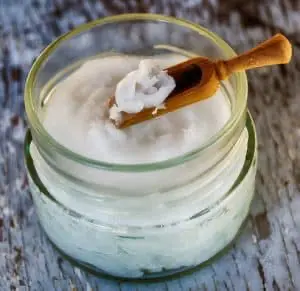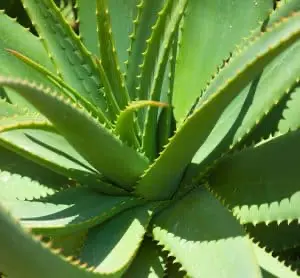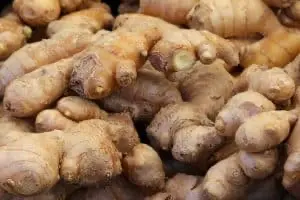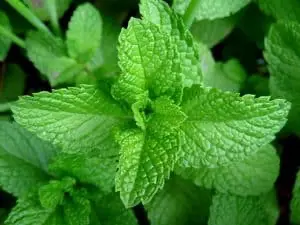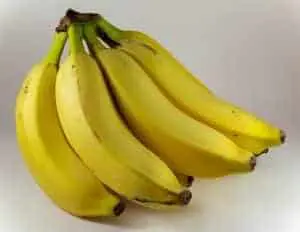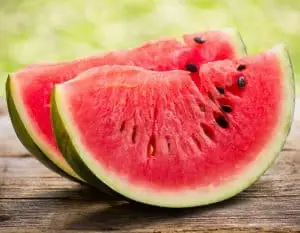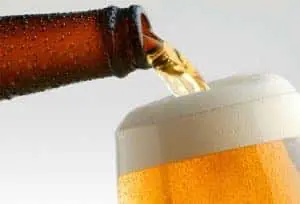Everybody, regardless of whether they’re horsey or not, knows that they can (and should) eat hay, but did you know that there are other things, such as coconut oil, that horses should have too?
While the nutritional needs of a horse are dependant on things like their age and workload some foods can be consumed by all horses regardless of any particular needs they have, whether as part of their daily diet or as occasional treats.
There are so many ‘human’ foods that can help your horse which is why I thought I’d write this article. The only caveat I would add though is don’t suddenly change your horse’s diet because this can cause many more problems than it can solve, instead slowly introduce anything new over a period of a few weeks.
Coconut oil
It doesn’t really matter how you use coconut oil around horses it’s going to benefit them in so many ways, just as it does with us. I won’t go into all of the ways coconut oil is good for your horse because I’ve covered the subject in more detail here but I’ll quickly summarise how good it is to feed it to your horse daily.
It’ll help to keep your horse’s gut healthy, boost his ability to fight off infections, and help to keep the cost of hay down. If your horse finds it difficult to put weight on (or to keep it on) then coconut oil can even help with that, the way that fatty acids (which is exactly what coconut oil is) are absorbed means that it’s ideal for helping hard keepers retain the weight.
When to feed: Coconut oil is so versatile that you can either add it to your horse’s daily feed or give it to him as a lick. If you prefer you can also use it as an occasional treat.
Aloe Vera
I’m sure you’ve all heard how Aloe Vera can help to heal wounds in horses (as well as in us) but it can do so much more than just that. This cactus-like plant (which is actually a member of the lily family) is so much more than a ‘cure-all’ plant. Aloe Vera has a surprisingly high amount of digestible fiber and can be very useful for keeping the digestive and lymph systems in tip-top condition.
Its also regularly used as a natural way to treat (and prevent) ulcers, this is because the high levels of digestive fibers found in the juice of the plant are known to regulate the bacteria which can help to soothe the ulcer but it can also aid the repair of the cells. In fact, a recent study found that Aloe Vera is just as effective at treating ulcers as a prescribed course of Omeprazole.
The only downside to Aloe Vera though I that it has a strong taste that some horses may not like, if your horse is fussy about this then try mixing it with his feed instead, it’ll absorb into the food and which will dilute the taste.
When to feed: Include it as part of your horse’s daily feed, add a little bit to his meal every day with the aim of giving him between a 1/4 and a 1/2 a cup a day.
Ginger
You probably know that ginger can be beneficial to a healthy digestive system as well as reducing the amount of excess stomach acid but did you know that it can also help to reduce fatigue and improve recovery times? More research needs to be carried out into the effects of ginger but a study carried out by Rutgers University in New Jersey found that it can have a positive effect on energy recovery. They gave some horses a small amount of ginger an hour before exercise (other horses were given a placebo) then exercised all of the horses until they were exhausted. The time the horses who’d had the ginger took to recover was far quicker than that of the other horses. While this obviously isn’t conclusive other similar tests have produced the same results.
When to feed: A small amount of ginger extract an hour before exercise will help to reduce fatigue but adding a spoonful of ginger to your horse’s daily feed will help to keep his digestive system healthy.
Mint
It doesn’t matter if it’s fresh mint, a mint Life Saver or a specially develop equine treat, all horses love mint (I’m sure some people will say that their horse doesn’t, but most do, also it sounds better if you say all rather than some!). You could be forgiven for thinking it’s the strong smell they love and, while this probably does play a part, it seems that horses know more about the benefits of mint than we do. As well as being an anti-inflammatory it can aid digestion and even help to repair cells. It can help to expel digestive gases, stimulate appetite, and can even help ulcers to heal on their own.
When to feed: If you’re feeding your horse fresh mint then you can add a handful of leaves to his daily feed, otherwise if you’re feeding them as treats then do so occasionally. Don’t forget that even equine mints will have a certain amount of sugar in them so don’t feed too many.
Banana
This might sound like an unusual thing to feed a horse but there are a lot of health benefits to bananas. While the soft texture of them is appealing to older horses and those with sensitive gums or dental problems bananas are actually packed full of vitamins and minerals such as potassium, magnesium, iron, and vitamins A, B6, and C. This means that they’re good for the heart and help to support muscle development.
The nutritional benefits of bananas mean that they can be fed to your horse as part of his normal diet but because of their ‘busy’ nature don’t feed too many in one go, doing so will make your horse feel very uncomfortable. They can also become indigestible which can lead to other problems.
When to feed: While a banana should be fed as a treat if you cut them into thirds (or quarters if the banana’s big) you can feed your horse a bit every day. It’s perfectly okay to feed the skin as well but most horses won’t enjoy that as much.
Please note: Bananas are naturally high in sugar so if your horse is insulin-resistant, for whatever reason, you shouldn’t feed them bananas.
Watermelon
Despite being approximately 92% water watermelons actually contain a lot of vitamins that have a plethora of benefits. They have vitamin A that can help with eyesight (not that horses need much help with that), vitamin C that can not only help to improve your horse’s immune system but also speed up the healing of wounds, and vitamin B1 and B6 that can help to give your horse ‘cool’ energy.
On top of those health benefits, the high water content can help to keep your horse hydrated during the hot summer months. Also, as long as you don’t do it too often, you can feed your horse the rind too.
When to feed: Watermelon should be used as a treat rather than as an everyday food item. If your horse is prone to choking or a speedy eater you might want to consider breaking the rind into smaller pieces or even removing it completely.
Beer
You might think that you shouldn’t give horses beer but when you consider that it’s mainly made from barley and hops it’s easy to see why horses are okay to drink beer. Unlike us, horses generally don’t need to worry about the alcohol content because they need far more to get drunk.
Some horses suffer from a condition known as anhidrosis which means they either can’t sweat properly or won’t sweat at all. This can be very dangerous because the horse isn’t able to regulate his temperature and can overheat. For many years beer has been used as a successful treatment for this.
Beer has a slightly anesthetizing effect and there is some evidence that it can help to alleviate the symptoms of mild colic because it can relax the muscle spasms, but beer should NEVER be used instead of proper veterinary advice.
When to feed: Some people will give their horse a little bit of beer in their daily feed but you can also use it as a treat and give your horse a bottle of beer now and then. It can be especially rewarding for the horse if the weather is hot and the beer’s been chilled.
Conclusion
Many of the healthy foods we eat can also be enjoyed by horses but don’t just presume because they’re good for us you can share them with your horse too. Horses have very different digestive systems to us and aren’t able to break their food up as well as we can. If you’re not sure whether it’s okay don’t risk it.
Further reading
- 20 things you should NEVER feed horses
- Healthy treats for horses
- How coconut oil can benefit your horse
- Do horses need supplements
- Feeding a hard keeper on a budget
- Feeding a horse with no pasture
- Is my horse healthy?
- What are your horse’s teeth telling you?
- Treating ulcers naturally
- Why horses eat mud
I hope you found this article helpful. If you did I’d be grateful if you could share it please as it would really help me.
Recommended products
Over the years I have tried hundreds of different horsey products, from various blankets and halters to different treats. Some I’ve loved, others I’ve hated but I thought I’d share with you my top all-time favorite products, the ones I never leave the yard without. I’ve included links to the products (which are in no particular order) that I really think are great.
- Horse Knots by Reference Ready – If you’re like me and enjoy pocket reference guides then you’ll love this knot tying guide. These handy cards can easily fit in your pocket or attach to the saddle for quick reference. They’re waterproof, durable and are color coded to make them easy to follow.
- Mane ’n Tail Detangler – Even if you never show your horse you’ll need to detangle his tail from time to time (and possibly his mane too) which is always a challenging chore! I’ve found that if I run a little bit of detangler through my horse’s tails every few days it stops them from getting matted up and makes combing them easy, even if they’re coated in mud. I don’t know if I should admit to this or not but it also works wonders on my hair.
- TAKEKIT Pro clippers – Over the years I’ve tried a lot of different clippers and while some were obviously better than others I found these to be by far the best. They are heavier than a lot of other clippers but for me, that’s a good thing, it makes them feel more sturdy and hardwearing. On top of that they have a range of speeds so are just as good for clipping your horse’s back as they are his face. I also like the fact that they come in a handy carry case but that’s not for everybody. The company that makes them is super good and incredibly helpful too, a real bonus these days. The only thing I wasn’t keen on was the fact that it doesn’t come with any oil, but that’s not a major problem as it’s not difficult to buy lubricant.
- Shire’s ball feeder – There are so many boredom buster toys out there but I like to use these every day, regardless of whether or not my horses are bored. I find that it helps to encourage my horses to problem solve by rewarding them with treats (or pieces of fruit) but it also mimics their natural grazing behavior which helps to keep them calm and de-stressed.
- Horse safe mirror – This is a strange one that many people are surprised about but I like to put horse safe mirrors in the trailers as well as in the quarantine stalls. It helps to prevent the feeling of isolation by giving the impression of other horses being around. Being herd animals horses can get extremely stressed when they feel that they’re on their own but with these stick-on mirrors, they believe that at least one other horse is with them.
- Rectal thermometer – I know this isn’t glamourous at all but it’s vital for your horse’s well-being to be able to check their temperature and a rectal thermometer is the easiest way of doing this which is why I’ve added it to the list.
Shopping lists
I’ve also put together a few shopping lists of essential items that I’ve found helpful over the years. I’ve broken the lists down into different categories rather than put everything in one massive list 😉

